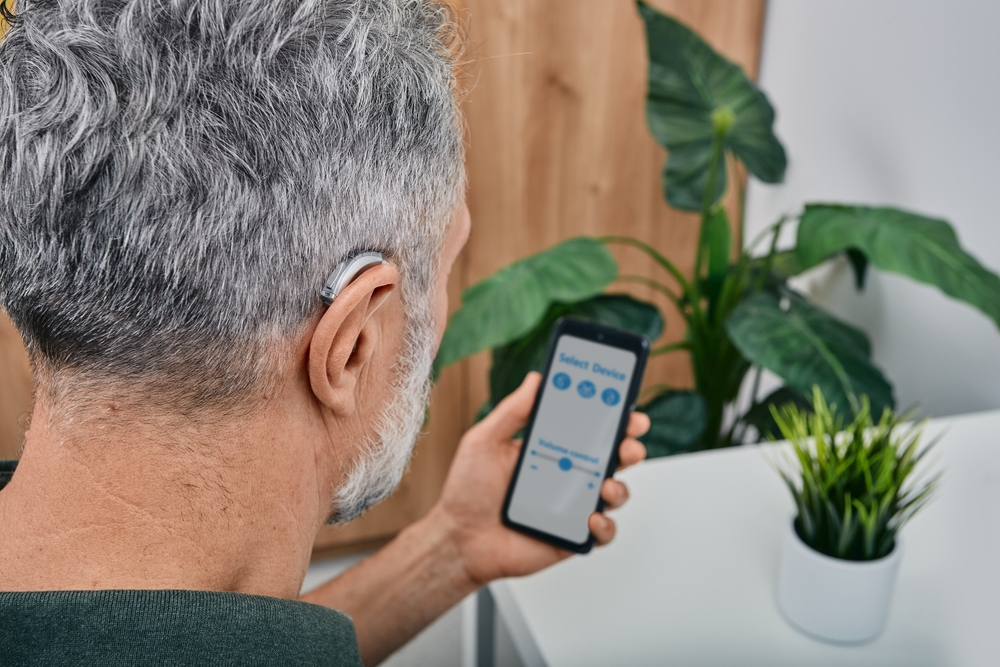
Socializing with friends and family and communicating with co-workers can be negatively impacted by even slight hearing loss, and this also includes everyday activities like shopping. But transformative changes can be brought about by the use of properly tuned hearing aids.
Ten reasons why you should consider hearing aids
While the chief advantage of hearing aids is obvious, improved hearing, their impact goes far beyond mere auditory enhancement. Let’s explore the comprehensive benefits that wearing hearing aids can provide.
Better relationships and communication
Personal relationships rely on the ability to clearly communicate. Relationships can be strained when hearing loss leads to missed communication. Hearing aids allow you to participate fully in conversations, improving your ability to interact with others and decreasing feelings of separation or disappointment.
Being more independent
Simple tasks like shopping or eating out can become challenging with untreated hearing loss, as communication barriers may arise. Hearing aids enable you to navigate these situations independently by increasing your ability to hear and understand speech in a variety of environments. Having a greater sense of independence will help you do things that demand enhanced situational awareness such as driving, for example.
Possibility of earning more
Effective communication is key when you’re working in professional settings. Your job efficiency and career advancement can be diminished by untreated hearing loss which can affect how you participate in meetings and other work-related gatherings. By wearing hearing aids, you can stay engaged and alert, boosting your productivity and opening doors to career opportunities.
Discomfort From tinnitus can be reduced
Tinnitus, which is a ringing in the ear, often accompanies hearing loss. Hearing aids can offer relief from tinnitus for some people by masking symptoms.
Mitigated cognitive decline
A connection between mental decline and dementia, and hearing loss has been suggested by the results of some studies. By managing hearing loss with hearing aids, you could reduce the risk of cognitive impairment and maintain better overall brain health.
The ability to take pleasure in music
Hearing loss can distort the perception of music, making it less enjoyable. The depth and richness of musical sounds can be restored by hearing aids which fill in the gaps in frequency so you can enjoy your favorite songs again.
Increased confidence
Whether you’re in a social or professional setting, being able to hear better will give you more confidence. Your general quality of life will be enhanced and you will feel more capable when you can communicate better.
Increased energy levels
Untreated hearing loss can be mentally tiring, as the brain works harder to compensate for auditory deficiencies. Hearing aids decrease this strain, giving you mental relief and allowing you to enjoy activities without feeling constantly tired.
Awareness and safety can be improved
Awareness of one’s environment is crucial for safety, whether it’s crossing the road or driving a car. Environmental sounds can be restored by hearing aids, ensuring that your reaction to things including alarms and approaching vehicles is safe and appropriate.
Setting an example that is positive
Embracing hearing aids demonstrates a proactive approach to health and well-being, establishing a positive example for others facing similar difficulties. It reflects a commitment to personal growth and improvement, inspiring people around you.
Get your hearing checked today
While the chief advantage of hearing aids is to enhance auditory perception, the ripple effects on other aspects of life are profound. Whether it’s nurturing better relationships, increasing independence, or protecting mental health, the decision to use hearing aids is a step towards a more rewarding and engaged life.
Take the first step towards hearing better today by scheduling a hearing assessment with us.